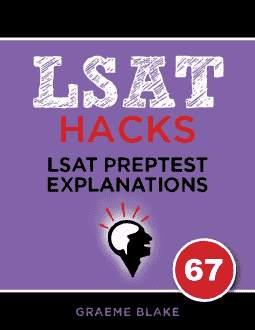DISCUSSION: Passage A was concerned with the effects of invasive species. It told us that ecologists are worried that all habitats are vulnerable.
Passage B presented an argument for why Passage A’s concern was unfounded. Invasive species are not dangerous (though that doesn’t necessarily mean we should encourage them).
___________
- Neither passage discussed the causes of invasive species.
- Passage A questioned an old assumption about invasive species (Elton’s), not a common assumption. Passage B didn’t confirm Elton’s assumption – it said invasive species were not a threat at all.
- Passage B’s point was that invasive species aren’t bad. They didn’t say they were good. If invasive species were good, then we should encourage more species invasions. But passage B didn’t recommend that. Also, passage A didn’t show that everyone though invasive species were bad. They just said ecologists think so.
- CORRECT. Passage A warns about the dangers of invasive species; it describes the beliefs of ecologists. Passage B argues that the ecologists have an incorrect definition of nature, and that invasive species are not harmful. Note that ‘not harmful’ isn’t the same thing as ‘good’.
- Passage A doesn’t say what we should do. Passage B does more than ‘raise questions’ about Passage A’s argument: Passage B disagrees completely.


There are places in passage B talk about the benefits of invasive species: line 41-43, for example says “if you add many new species and lose few or nonnative species, the overall species count goes up.” Line 34 also gives me this impression that the author of passage B think invasive species brings positive changes: “species invasion is not a zero-sum game…rather…it is a positive-sum game.”
Good points. I should clarify that passage B is largely focussed on whether invasive species are beneficial *to nature* whereas answer C here just focusses on whether invasive species are beneficial. If invasive species are beneficial overall we should increase species invasions as much as we can. This is a pretty radical position and I don’t think the author of passage B is for it.
But the other issue with B is about how the phenomenon is *usually* considered. Most people don’t think invasive species are good for the environment. The author of passage B argues they are wrong, but he is arguing about what is factually true rather than what people believe.
Note: This is an old comment but I wanted to clarify the point.
Could you further explain why answer choice C is incorrect. I was going back and forth between C and D, and ultimately chose C because D mentioned ‘dangerous’ and both passages don’t truly mention that evasive species are dangerous per say, rather that they are not entirely harmful/ are harmful.
The biggest clue why C is incorrect is the word “beneficial”. Nowhere in the article did the author talk about how invasive species brought benefits to the ecosystems; he/she just talked about how it alters the ecosystem and makes it different.
The word “dangerous” is a bit strong but keep in mind that the answer doesn’t have to use the exact language in the stimulus. In this case, “dangerous” is a synonym for “harmful”, which is used in the stimulus. Both words, in their contexts, imply that damage is being done.